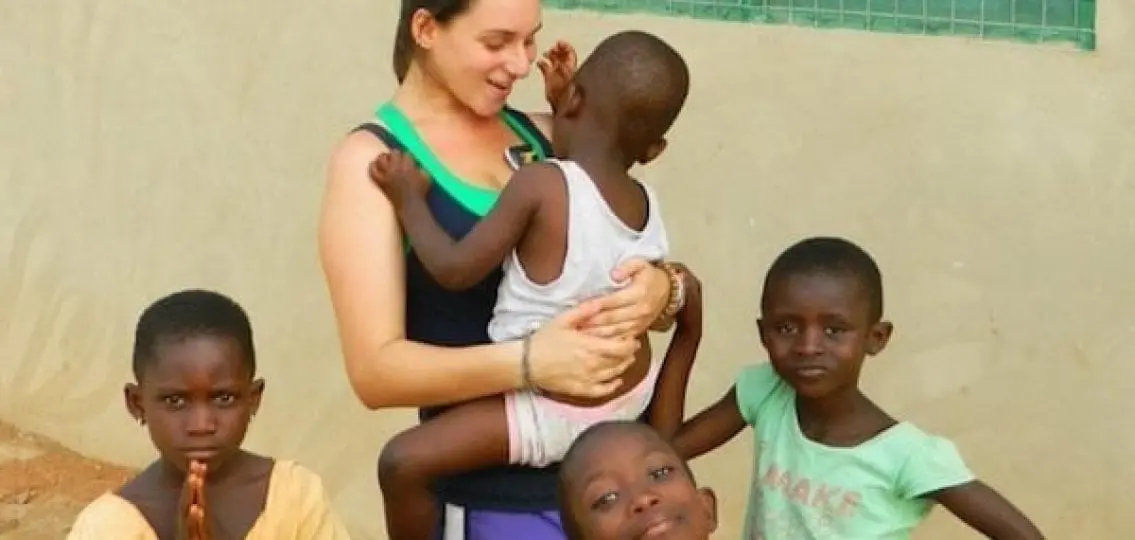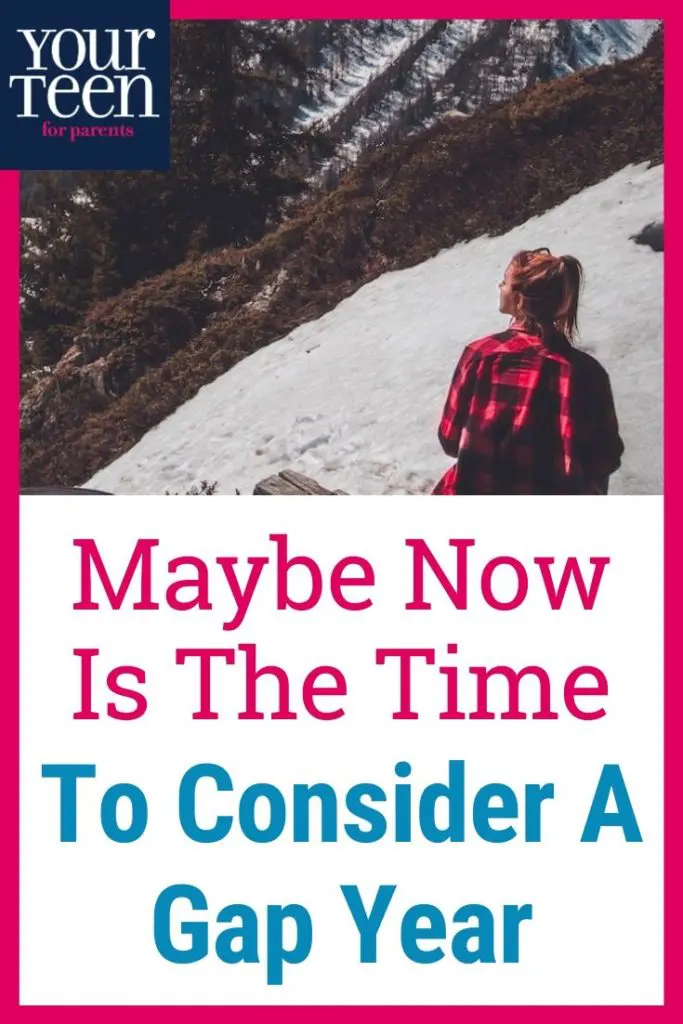Julia Rogers is a professional gap year counselor and the founder of Enroute Consulting Gap Year and Travel Planning. She has 11 years of experience coaching students through gap year planning. In addition to individual consultations with families, Julie also offers a variety of webinars and short courses to help parents and students through gap year planning as it relates to Coronavirus. Learn more at Enroutegapyear.com.
| [adrotate banner=”169″] |
Q: Some people see a gap year as a break. Do you see it that way?
Rogers: Even though we call it a gap year, there are other people who refer to it as a bridge year or discover year or a year on. In reality, a gap year is really about taking ownership over this formative moment in your life and doing things that are outside the classroom and that allow you to build on your interests and possible career paths. So it’s definitely a productive and intentional period of time.
Q: Did you take one?
Rogers: I did. I went to Hamilton College. When I graduated, I decided to go to Tanzania and East Africa for 10 months, and I did public health outreach with an NGO there. And it was the most formative experience of my life. It led me to my career path, and I also met some of my best friends through that program.
Q: How did your family respond when you said you were going to Tanzania?
Rogers: Funny that you asked that. My father is a veterinarian, and my 70 liter backpack was about half filled with medical supplies because I was living in a rural village that was very under resourced medically so he wanted me to have every kind of medical supply that was legal to carry over borders. I ended up donating them to the clinic in my village, but they were pretty nervous. I was a college graduate at the time so they supported me, and they were really impressed with that choice, but they were scared. Then I came back healthy and a better person for it. Now you couldn’t find two bigger gap your advocates. It is a process of letting go, having trust in your child, and choosing appropriate opportunities for your child so they can thrive within the framework that you’re setting out with them.
Q: Do you find yourself having to calm the nerves of the parents sometimes?
Rogers: Certainly, sometimes I think that parents are usually the ones who see deficiencies in their child and other people can sometimes see the potential a little bit easier. One of my roles as a third party is to remind parents about how amazing their kids are and how impressed they will be if they give them a little bit of a longer leash and allow them to try things out. And almost always parents come back and say, “Wow, I had no idea my kid could do that.” So it’s an exercise in growth on the parent side as well.
The great thing about a gap year is that it gives the space for parents and students to navigate a new territory. But the relative risks are low. If you send a kid to college when they’re not ready, they could waste your money and waste their time and flunk out or not take it seriously or switch their majors five times. And that seems like a pretty significant detour from where they want to be. Whereas a gap year, even though it seems like a detour, is actually more foundational. You’re building on your interests, and building towards something. At the end of it, you know more about what you want to study, you know more about your skills and your strengths as a person, and you’re more independent and mature and ready for post-secondary education.
Q: What’s your least known, most interesting gap program?
Rogers: I think that a lot of people might not know that there are boat-based gap year programs. There are actually shipboard programs where you can learn marine biology and crewman ship and things like that while on board these large ships that aren’t like cruise ships, but they’re sailboats. And you get to live and work on the boats. So that’s pretty cool. There are also programs where you can learn how to rock climb a mountain near in the Rocky Mountains. There are small programs along the border that are providing service to new Americans or to asylum seekers. If you want to focus on your Spanish language, but you are not going international this year, you could go to a border town or to the Southwest and utilize your Spanish skills in a different capacity.
Q: If I want to encourage my kids to seek out some of these programs, where do we look?
Rogers: Most families start on Google and that can get overwhelming pretty quickly. I definitely invite anybody to contact me. I exist to help parents and help students find the right opportunities for their particular student without spending untold amounts of time on the internet, weeding through opportunities that may or may not offer a good experience. That’s really where my expertise as a counselor comes in. My website is Enroutegapyear.com. And another great place to start your research is the gap year association which is gapyearassociation.org. They are a nonprofit that offers information and data and accredited program reviews to the public who are looking for good options as well.
Q: What is your best advice for parents if their kids come up to them and say they want to have this conversation?
Rogers: I would say thank your lucky stars that your kid is thinking outside the box this year because if a student is coming to their parent and presenting this idea, that means they’re already starting to think about things that excite them and ways that they can be productive during this uncertain time. That shows to me a level of resilience and creativity that’s really important right now.

Take a deep breath, and then come to this kitchen table together, sit down, talk through ideas, keep an open mind, and let the process be driven by your child. You have to set some ground rules — there’s a budget that you want to be respectful of, or there’s certain places that you feel comfortable with or not feel comfortable with. But once you all set those ground rules as a family, let the student drive the process and the planning because that’s where they’re going to get the most out of it.
Q: Are there any students who should not be considering Gap Year?
Rogers: Every decision that a family makes has got to be right for them. It’s great that we’re having this conversation and expanding everyone’s mind to the fact that this is a great pathway for some students. But if you’re in a situation where you’ve gotten accepted to a school that you’re excited to go to, and most importantly, you’ve gotten a financial package that is extremely attractive and your financial picture is going to still make sense with that package into the future, it’s probably a good idea is to stay the course with that school. After all, we know that things are going to be changing a lot with higher ed over the next couple of years because of COVID.
Or if you’re the kind of student who’s just very excited to start their college experience or eager to finish, if you’re already halfway in or a little bit in, and you’re okay with online learning, you’re okay with taking some more time off campus, and you feel like the quality that your institution is providing you is up to par with what you’re paying, that’s okay, too.





